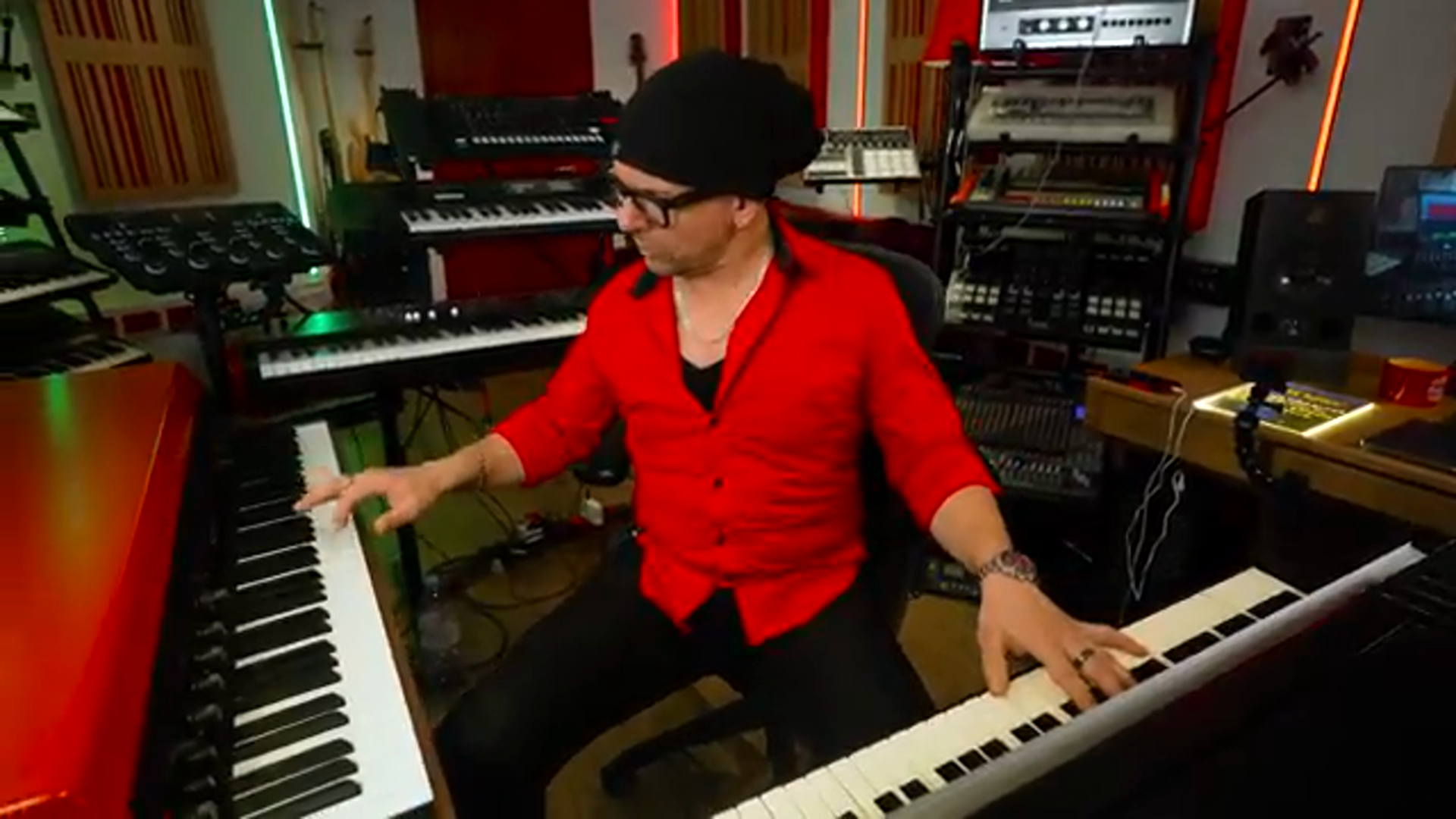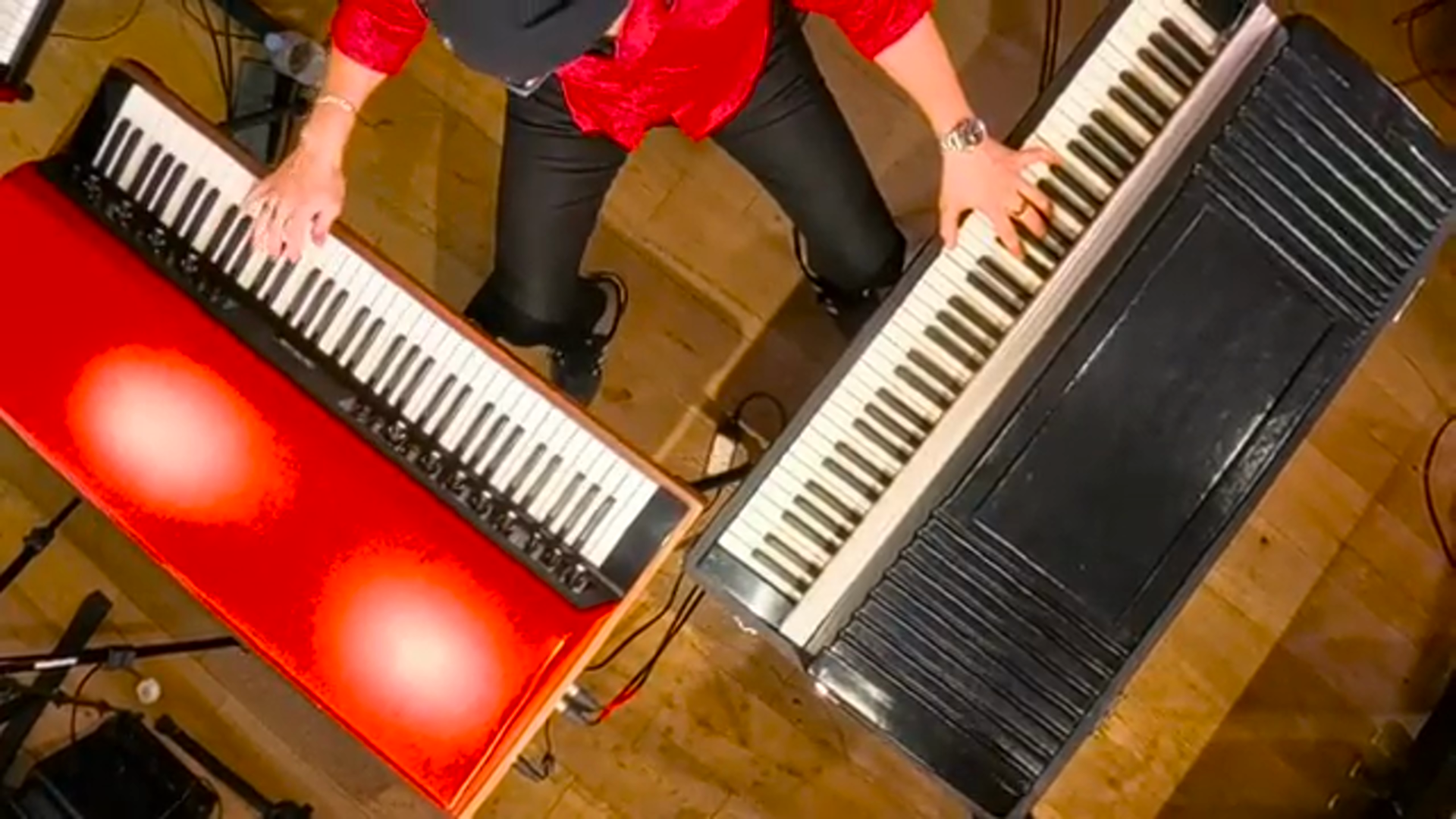Dive into a head-to-head battle of classic sound with Doctormix, as he pits the timeless Rhodes MKII against the brand-spanking-new Rhodes MK8. Expect raw honesty, detailed comparisons, and a touch of British humour from the ever-enthusiastic Doctormix in this musical showdown.

24. June 2025
JET
Doctormix Goes Head-to-Head with Rhodes MKII and MK8
Design Duel: Classics versus Modernity
In the first round, Doctormix dives into the design and build of the Rhodes MKII and MK8, and it’s like watching a battle between a vintage classic car and a sleek modern sports car. The MKII, a product of 1980, sports a boxy, straight look reminiscent of an analogue past, with solid wood and a distinguished, time-worn essence. On the other hand, the MK8, fresh from the UK’s Rhodes Music, boasts sleek lines and contemporary finishes, with options for customisation like colours for the front panel and hood. Doctormix notes the obvious uptick in build quality with the MK8, comparing it to a robust, loud amp-less beast due to its metal and solid wood composition. It’s a case of old-world charm meeting new-age sophistication, and despite the age, the MKII holds its weight (quite literally) against its modern counterpart.
Under the Hood: Inside the Mechanism
The nerdy magic happens when Doctormix delves under the hoods of these iconic pianos. It’s like peeking into a time capsule from the ’80s with the MKII – the scent of history wafts through the air as we gaze at wooden boards and legacy coils. Surprisingly, the basic mechanism hasn’t changed much; both bear the same design, a testament to their enduring engineering. The MK8 utilizes modern materials, yet still retains that classic mechanical heart. With the MK8 being a fresh number 75, celebrating 75 years of Rhodes, it’s like holding a piece of history reimagined. The MKII might feel and look dated, even empty underneath, but it offers a different texture of history, more than just MDF under sparkling new casings. Doctormix’s enthusiasm is infectious as he opens and compares, making each nuance feel like a treasure unearthed from the annals of musical lore.

"It smells like time, you know?"
Keys of Expression: Touch and Feel

"The touch on the MK2 is a lot lighter."
Moving next to the keyboard action, Doctormix gives us a sensory journey through touch and response. He describes the MK8 with reverence, noting the firm, luxury feel akin to a high-end piano. These keys, produced by a Steinway-affiliated firm, promise smooth, precise dynamics without wobble. He contrasts this with the MKII, whose keys have the endearing wobble of an older pub brawl veteran. The MKII’s keys bounce with age, offering a lighter, less predictable touch. Though outclassed in precision, the MKII’s keys carry a character of their own, an unpredictability that many artists might find charming. Doctormix highlights this, almost like comparing a vintage sports car that demands a practiced touch versus a sleek new model that handles like a dream, offering every nuance on a platter.
Sonic Showdown: Sound and Character
Here lies the crux of the matter: the sound. Doctormix unleashes the fury of both instruments and lets us hear the MKII’s slightly nasal, vintage timbre against the MK8’s more controlled, precise voice. The MK8 is lauded for its precision, almost surgical in its delivery thanks to that fresh keybed. Yet, amidst all this precision, the MKII’s sound holds its own, a warm, more organic vibe emanating from its aged circuits. Each note from the MKII seems wrapped in the tales of decades of music played. Doctormix juggles with the nostalgia and newfound clarity, echoing the sentiment that while the MK8 could go toe-to-toe with high-tech challengers, the MKII brings a storytelling depth only age can conjure. It’s a battle between new and old, and both have intricacies that are hard to ignore.
Connectivity Clash: Interfaces and Outputs
In an age where connectivity is king, Doctormix gives a rundown on the interfaces each model offers. The MKII, with its suitcase form, brings a vintage connection assembly, emphasising the simplicity of yore but not without its unique charm. Meanwhile, the MK8 is a symbol of modern versatility, armed with balanced outputs for clean signals, impressive send-and-return options, and MIDI connections to boot. Doctormix appreciates the MK8’s adaptability, highlighting the external power adapter as a forward-thinking feature, simplifying international use and future repairs. It’s clear that the new technology in the MK8 is tailored for the current generation of musicians, eager for seamless integration into fast-paced setups, versus the MKII’s more analog, pedal-friendly but less expansive adaptation.
Effects Extravaganza: Timeless Vibes
As the video unwinds, Doctormix dives into the effects—a synth lover’s paradise! The MKII offers basic but iconic vibrato and EQ controls, giving it that retro edge, while the MK8 presents a buffet of digital wonders. Doctormix is visibly ecstatic, showcasing the MK8’s expansive effects from its sophisticated preamp section to dynamic enveloping features, overdrives, choruses, and phasers — a true playground for sonic experimentation. He emphasises the delight in customising the MK8’s sound, almost like an extravagant dessert after a hearty meal. The MKII, though basic, offers its own player-adjustable quirks—a character all its own. With a mix of the MK8’s robust digital arsenal against the MKII’s vintage charm, Doctormix marvels at how both pianos cater to different palettes, each rich in its own right.

"Crazy, right? Phaser."
Price Wars: Pounds and Sense

"This version is twelve thousand dollars. Oh, because it's got stand 73."
Finally, Doctormix tackles the wallet-draining truth of costs and value. The MK8, shining with all its high-tech glamour, racks up a hefty price tag, with models pushing close to 13 grand. This brand-new wonder costs a pretty penny, but you’re paying for innovation and an embodiment of Rhodes’ enduring legacy. The MKII, simpler and vintage, can be found within a more modest price range, though rarities push these past the five grand mark, depending on history and condition. In this interplay of cost versus experience, Doctormix lays down the harsh reality: the decision ultimately rests on whether one seeks the nostalgia and history wrapped in the MKII or the shiny, pristine press of the MK8. It’s a classic conundrum where no single answer fits all desires, creating fuel for lengthy pub conversations and passionate debates in synth circles.
Latest articles
Watch on YouTube:
https://www.youtube.com/Doctormix
Links from Doctormix:
Sponsored links:
If you purchase via these links, we may earn a small commission – at no extra cost to you.
🔗 Check price on Amazon